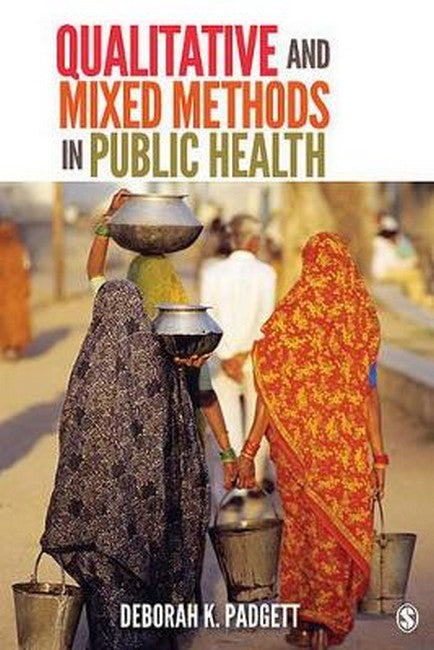Dr. Deborah K. Padgett is widely known for her expertise in qualitative and mixed methods including this third edition and a companion text Qualitative and Mixed Methods in Public Health (Sage, 2012). She is first author of Housing First: Ending Homelessness, Transforming Systems and Changing Lives (Oxford University Press, 2015) and has published extensively on mental health needs and service use of homeless adults and other underserved populations. Dr. Padgett was Principal Investigator on two NIMH-funded R01 grants, both qualitative studies of engagement and recovery among formerly homeless adults in supportive housing in New York City. She served as President of the Society for Social Work and Research (SSWR), culminating in the establishment of the SSWR "Deborah K. Padgett Early Career Award" in recognition of her contributions. She is a member of the American Academy of Social Work and Social Welfare (AASWSW) and serves on its Board. In 2013, Dr. Padgett received New York University's Distinguished Teaching Award.
Request Academic Copy
Please copy the ISBN for submitting review copy form
Description
Preface 1. Introduction 2. Choosing the Right Qualitative Approach(es) 3. Mixed Methods 4. Getting Started: Study Design and Sampling 5. Ethical Issues in Qualitative Research 6. Entering the Field and Conducting Observation 7. Interviewing and Use of Documents 8. Data Analysis and Interpretation 9. Strategies for Rigor 10. Telling the Story: Writing Up the Qualitative Study Appendix References Index About the Author
"There is a lack of quality qualitative texts specifically tailored for public health and I think this text could fill that gap. The emphasis on global health is a very attractive feature for this book as it would lend itself to a wide variety of professionals and students. The "start to finish" overview that the book attempts is very accessible for students who are just learning about how to go about conducting qualitative research." -- Michael Reece "...the data collection and analysis are all in one text, the examples given are great, and it provides a chapter on mixed-methods research which would be a natural segue into talking about quantitative data collection and analysis." -- Stephanie B. Jilcott "The three greatest strengths are the breadth of topics covered, the connection between classroom teaching and real world practical experience and classroom exercises, resources, practical examples - offering lots of opportunities to practice what is learned in the classroom." -- Rosemary M. Caron "Those of us who teach and use qualitative methods have been waiting for a book like this for a long time. Deborah Padgett successfully conveys the reasons for using qualitative methods, epistemological orientations, methodological traditions, and the nuts and bolt of how to do and report rigorous and relevant qualitative and mixed methods research. This well-balanced book is the perfect fit for those of us who teach and conduct applied health research." -- Geoffrey Nelson, Ph.D., Professor of Psychology

